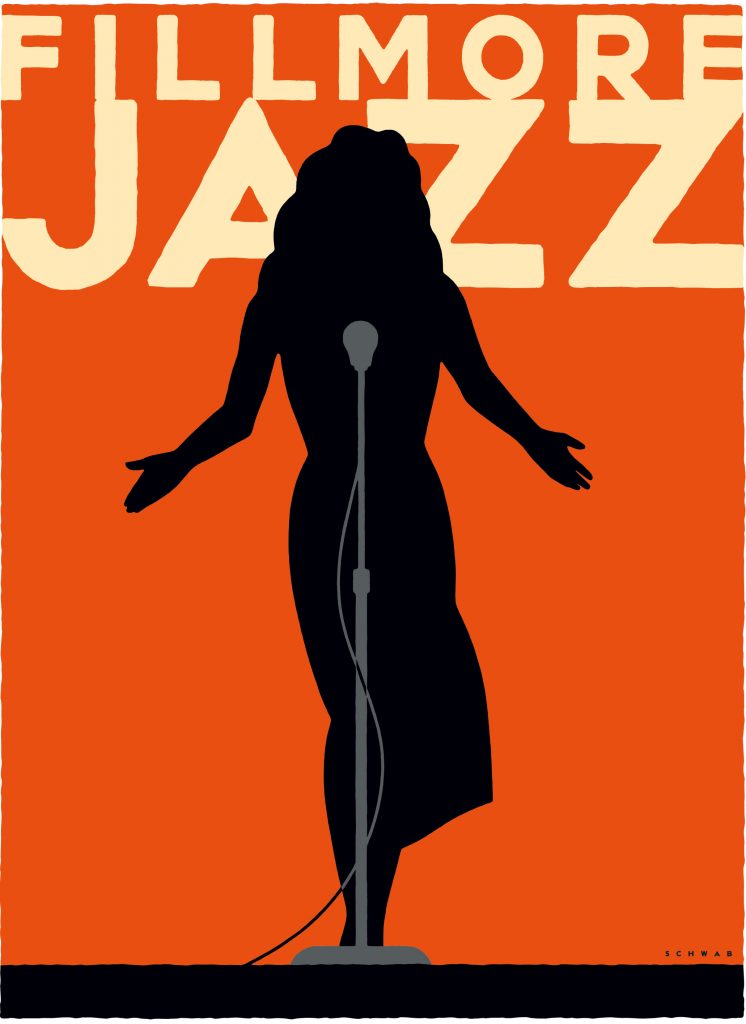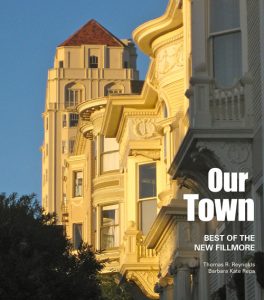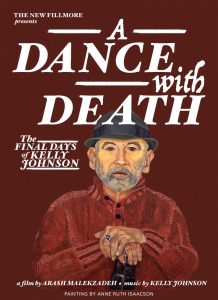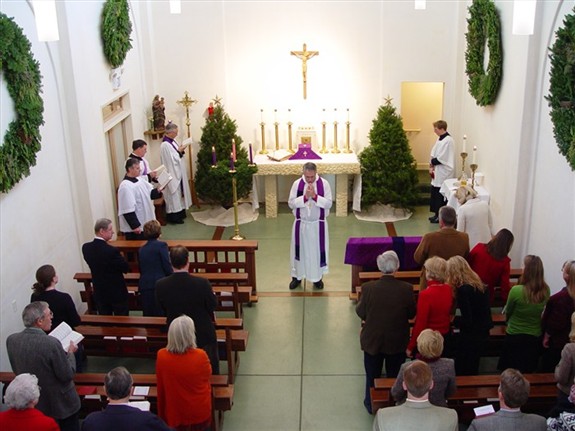By THOMAS REYNOLDS
That distinguished looking gentleman with the silver hair and the purple vestment you see walking around the neighborhood got still more distinguished last month: He was enthroned as the new archbishop of the Anglican Province of Christ the King, which includes most of the traditional Anglicans in the western United States.
Among those in the pews to witness his elevation was the gang from the bar at Florio on Fillmore Street. The Most Rev. James Eugene Provence often has dinner at the bar with the regulars.
“I’ve had some serious theological discussions there,” he says. “People will sit there and, after a couple of pops, they’ll ask a question.”
The archbishop has been in the neighborhood for nearly nine years as the parish priest of St. Thomas Anglican Church, which is housed at 2725 Sacramento Street in a perfectlly proportioned small chapel that would be at home in an Italian hill town. He came to St. Thomas after serving at several other California congregations, most recently at St. Stephens on Oakville Grade in Napa Valley, a rather more rustic setting than Pacific Heights.
“Here we’ve got flush toilets,” he chuckles. “There we had an outhouse.”
His irreverence reflects his proclivity for a pragmatic approach to faith.
“One of the main jobs is to personalize it, and you only do that if you’re with people,” he says. “It’s really important to me that people see how to apply things practically in what they’re going to do that afternoon.”
For all of his modern sensibility, the archbishop’s religion is something of a throwback. The province he heads was formed in 1977 when a group broke away from the Episcopal Church after major changes in practices and theology that moved the church toward more social action. So the breakaway group renewed its commitment to the 1928 Book of Common Prayer and to traditional forms of doctrine and liturgy, including a priesthood open only to men.
“Women priests — that became the lightning rod,” said Archbishop Provence. “But there were significant changes for men, too, that we rejected.”
Then he was still Jim Provence, a broadcast engineer in radio, television and later film. He was a layman in an Episcopal Church and became a founder of one of the new Anglican congregations. Learning about the theological changes led to his decision to go to seminary in 1980. Ordained as a deacon in 1983 and as a priest in 1989, he became bishop of the western diocese in 2003, and is now only the second archbishop of the Anglican Province of Christ the King.
Archbishop Provence was elected and immediately assumed his responsibilities last summer when the first and only archbishop retired after nearly 30 years in the position. But the ceremonial passing of authority occurred on January 25 with his enthronement. It was a ritualistic ceremony full of tradition. He knocked at the door of St. Peter’s Pro-Cathedral in Oakland, was escorted to the cathedra, given the pastoral staff and greeted by the bishops before celebrating mass.
Even with his broader role, he remains the parish priest at St. Thomas, just as others in the church hierarchy also continue to serve a congregation in addition to their administrative responsibilities.
“It makes certain the people making the decisions are living with them,” he says.
He acknowledges it is a bit ironic to find a conservative congregation, made up of about 100 members, in the heart of a liberal city.
“We have lots of people from the financial world,” he says. “Our members tend to be more traditional and more politically conservative — although we don’t talk politics,” he quickly adds.
“It does present difficulties to be a conservative church in a liberal town,” he says, but he points out that he was born in San Francisco, and that his ancestors were in the Bay Area since 1860. “Being a traditional person in San Francisco, while having its challenges as a priest, doesn’t particularly challenge me the way it would someone who grew up in Omaha.”
He has become a familiar presence on the streets of the neighborhood, immediately recognizable by his clerical collar and brilliant purple shirt, the color worn by Anglican bishops and archbishops.
“That’s one of the reasons I like this neighborhood so much,” he says. “I can walk it, and live it, and shop it. We don’t have to talk about theology. We can talk about life.”
St. Thomas is “to a great extent a neighborhood congregation,” he says, and he sees it as his mission to reach out to what he calls “the larger neighborhood parish” outside the walls of the church.
“I do bring in people I meet in Florio or Eliza’s or outside Mollie Stone’s,” he says. “Some of the people I meet make the transition to become members of St. Thomas. I’m not out there selling it, but I’m available to listen.”
Filed under: Body & Soul, Locals






